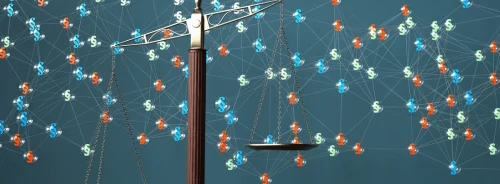Anna Sort, nurse, healthcare gamer and app creator at Play Benefit, answers the question: How should a healthcare app developer create a product that addresses a service need and that healthcare professionals want to use?
For the
past few years I've heard this discussion a lot in start-up meetings, over coffee
in congresses and even with my clients. I think it's a very important question
to ask yourself when you are creating solutions for healthcare in which a
potential user is a healthcare professional. When designing for healthcare
professionals, we might centre all our attention on what we think the problem
is and create a solution that solves it, making the process easier or faster.
However it might not initially seem like that to them. Covering a need is not
enough. They need to know they have this need. So how can you convince them
that they need your product?
Firstly, speak their language and relate.Have
one or, preferably, several healthcare professionals in your team – and I don't
mean advisory board. Although that is a very good initiative, you need someone
who knows the product and lived the project inside out to talk to the
healthcare professionals about how to use your solution. I find this extremely
useful, as if a team member knows the product and they’re a healthcare
professional, they can easily adapt the app to the needs of a general
practitioner, a nurse, a surgeon or a patient. They can use their own stories
from my experience to "hit home".
Secondly, spot the early adopters. With every technology there are early
adopters, people who start using something before anyone even know exists. You
can spot early adopters through social media, and my favourite platform to do
so is Twitter. Also, if they are Twitter influencers that always helps as
there's no bigger boost than having a Twitter influencer healthcare professional
talking about your solution to their colleagues. Many actually are constantly
seeking new content to offer during congresses, so if you think yours is the
next big thing, make sure to let them know.
Finally, listen carefully to criticism to spot needs. It´s not enough, as I mentioned, to have a great solution; you need to have make it easy for healthcare professionals to relate to your solution. Usually we think ask ‘how is this going to help them’? ‘Is this making a process faster?’ We usually create solutions to make processes or systems more efficient, faster and safer but that doesn't mean they perceive it the same way, for example, when extra steps are needed (opening app, clicking several things versus pen and paper), ‘faster’ might not have the same definition you have in mind. Also another important thing to keep in mind is not only the solution but the end user as healthcare professional. How are they going to be perceived using this solution by their patients? By their peers? Will they be perceived as caring more because it helps their patient, or will the be perceived as caring less because it makes them look lazy?
These three
points sum up a lot of the problems I hear in the discussions about how to have
healthcare professionals use apps. It's not about designing for the user. It is
designing with the user in mind, hence a healthcare professional in the team,
for me, is imperative.
What are your key areas of interest and research? Video games,
Engagement design, behaviour change, Placebo effect/mind power, willpower and stress.
What are the major challenges in your field? Finding people who want
to try and apply engagement design in their own institution. People see the
benefit but are afraid to change or doing things differently.
What is your top management tip? Listen to understand, not to reply.
It helps much more in the long run.
What would you single out as a career highlight? Starting my company,
PlayBenefit. I did it because I saw the need to change, and I thought it was
better to have someone take that road no matter how hard, rather than waiting
for something to happen and magically change everything.
If you had not chosen this career path what do you think you would have
become? I have no idea. My job didn't exist before, so I couldn't work on it in the field. I think I would have eventually gone down the same road because it's what I really believe in. The only other thing that could have happened is that if I had believed as strongly on something else, I would have gone down that path!
What are your personal interests outside of work? I love video games, reading and exercising. Time with family and friends is equally important! I don't do much "creativity" stuff out of work, I spend my day there being creative constantly! I love video games because I like to analyse how I engage and what attracts me to them, how they help me keep in touch with people that I don't see often (I have a ton of friends in France from my previous job) and how they also helps my imagination. I love story games, finance games and management games!
Your favourite quote?
“It’s not the problem, it’s how you react to it.”






